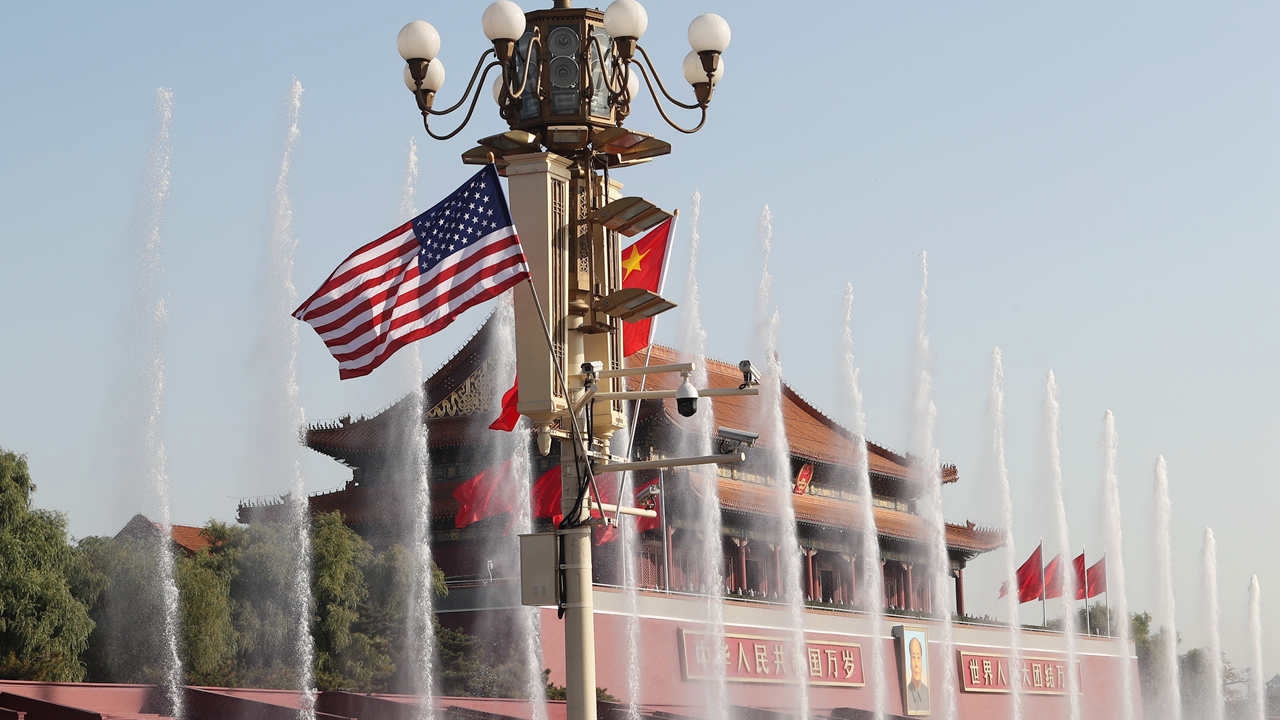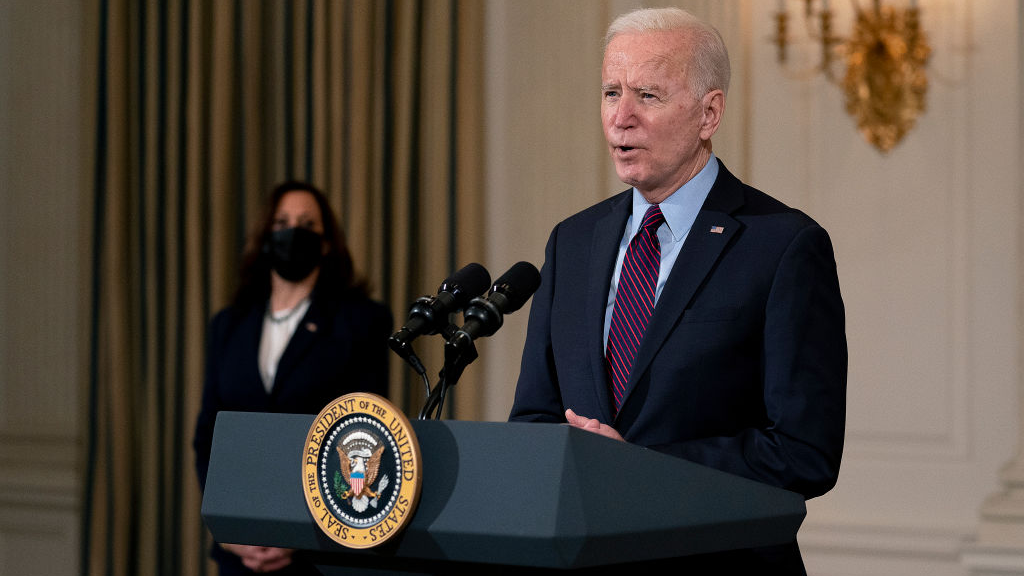
Editor's note: Stephen Ndegwa is a Nairobi-based communication expert, lecturer-scholar at the United States International University-Africa, author and international affairs columnist. The article reflects the author's opinions and not necessarily the views of CGTN.
The fact that relations between the U.S. and China are frosty still holds true. While China has made a few powerful pronouncements in the public domain that shows its willingness towards a rapprochement, the U.S. seems stuck in its old ways even after President Joe Biden occupied the Oval Office.
Apparently, former President Donald Trump was just a catalyst in escalating the tension between the two countries that share the world's biggest economies. The intransigence on the part of the U.S. is self-evident. In an opinion for The Diplomat on February 12 after the first phone call between Biden and Chinese President Xi Jinping on February 10, columnist Shannon Tiezzi noted that "while China calls for cooperation, the new U.S. administration shares many of the same talking points of the Trump team."
In the call, Biden gave his Chinese counterpart a long list of grievances devoid of a clear indication what he was offering in order to meet China halfway. It was a case of talking from both sides of the mouth, blowing hot and cold at the same time on pertinent bilateral and international issues as well. From the conversation between the two leaders, it was obvious who was not budging from their erroneous stronghold as Biden left his issues to open interpretation.
But China was at it again on Monday, just in case there was a misunderstanding on some previous discussions on relations between the two major countries. Fielding questions from a coterie of global journalists on the sidelines of the ongoing Two Sessions in Beijing, Chinese Foreign Minister Wang Yi reiterated that China still has its hands outstretched in pursuit of friendship, citing COVID-19, global economic recovery and climate change as a good place to restart the erstwhile amiable relationship.
The core message of Wang Yi's response towards restoring relations was that while healthy competition was inevitable between the two largest economies due to convergence of major interests, the race should not result in a zero-sum game. "Beijing has been careful not to be dragged into Washington's narrative that it seeks to 'compete with' or 'challenge' U.S. power."
Still, Wang Yi noted that there was a ray of hope in Biden's administration that the two could reach a comfortable level of mutual understanding. But time is of the essence and the major problem seems to be defining the time frame within which the two could meet at the negotiating table.
Meanwhile, going by U.S. continuance of interfering in China's internal affairs, there is a lot of work to be done to return to normalcy. The most recent incidence is the superpower's unbridled criticism of China's move to improve Hong Kong's electoral system, which China has made clear is not negotiable, and rightly so.

U.S. President Joe Biden delivers remarks for the proposed $1.9-trillion coronavirus relief legislation at the White House, Washington, D.C., U.S., February 5, 2021. /Getty
U.S. President Joe Biden delivers remarks for the proposed $1.9-trillion coronavirus relief legislation at the White House, Washington, D.C., U.S., February 5, 2021. /Getty
It is not all gloom tough. Rays of hope are shining though the dark clouds of misunderstanding. For instance, Chinese and American experts recently held a virtual exchange on epidemic prevention and control where they agreed that defeating COVID-19 requires global efforts in the spirit of unity and cooperation.
The event took place after Brookings Institution, an American think tank, had published an article appealing for U.S.-China cooperation in the fight against the pandemic, stating that the "urgent task of bringing the pandemic under control can only be accomplished through global coordination, which requires the active engagement of the two largest economies."
Since the start of the pandemic, China has tried its best to help the world with the knowledge and even resources to fight the scourge, while the U.S. has wasted valuable time throwing barbs at its adversary on the origin of the virus. Perhaps COVID-19 would be a problem of the past if the U.S. had agreed to join hands with China in upholding multilateral solidarity.
While the current "stalemate" is both economically and diplomatically unhealthy for both countries, it also does not augur well for global stability and leadership. China and the U.S. have been lighthouses to the rest of the world during crises.
Maybe a rapprochement could also benefit with some pressure from supporters of both sides. There are many countries and organizations whose development has been adversely affected by the tension and their voices could add perspective and create balance especially in instances where the U.S. has shown outright bias or aggression.
Ultimately, reinstatement of relations should also create absorbers that will help the two countries withstand shocks like the ones created unnecessarily by Trump. Resilience in diplomatic conflict is the only way to keep the world moving amid shifting realities and changing dynamics.
(If you want to contribute and have specific expertise, please contact us at opinions@cgtn.com.)

